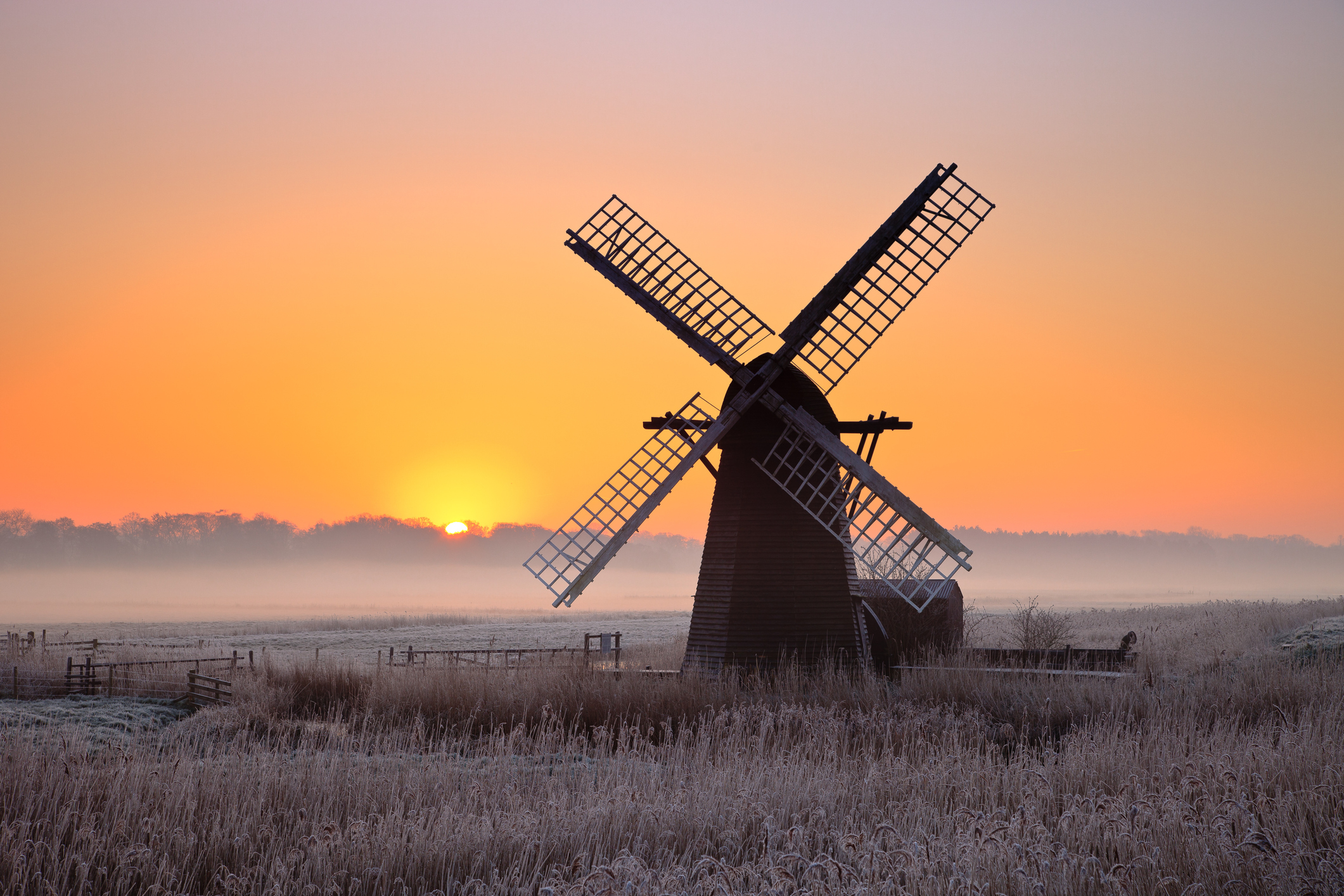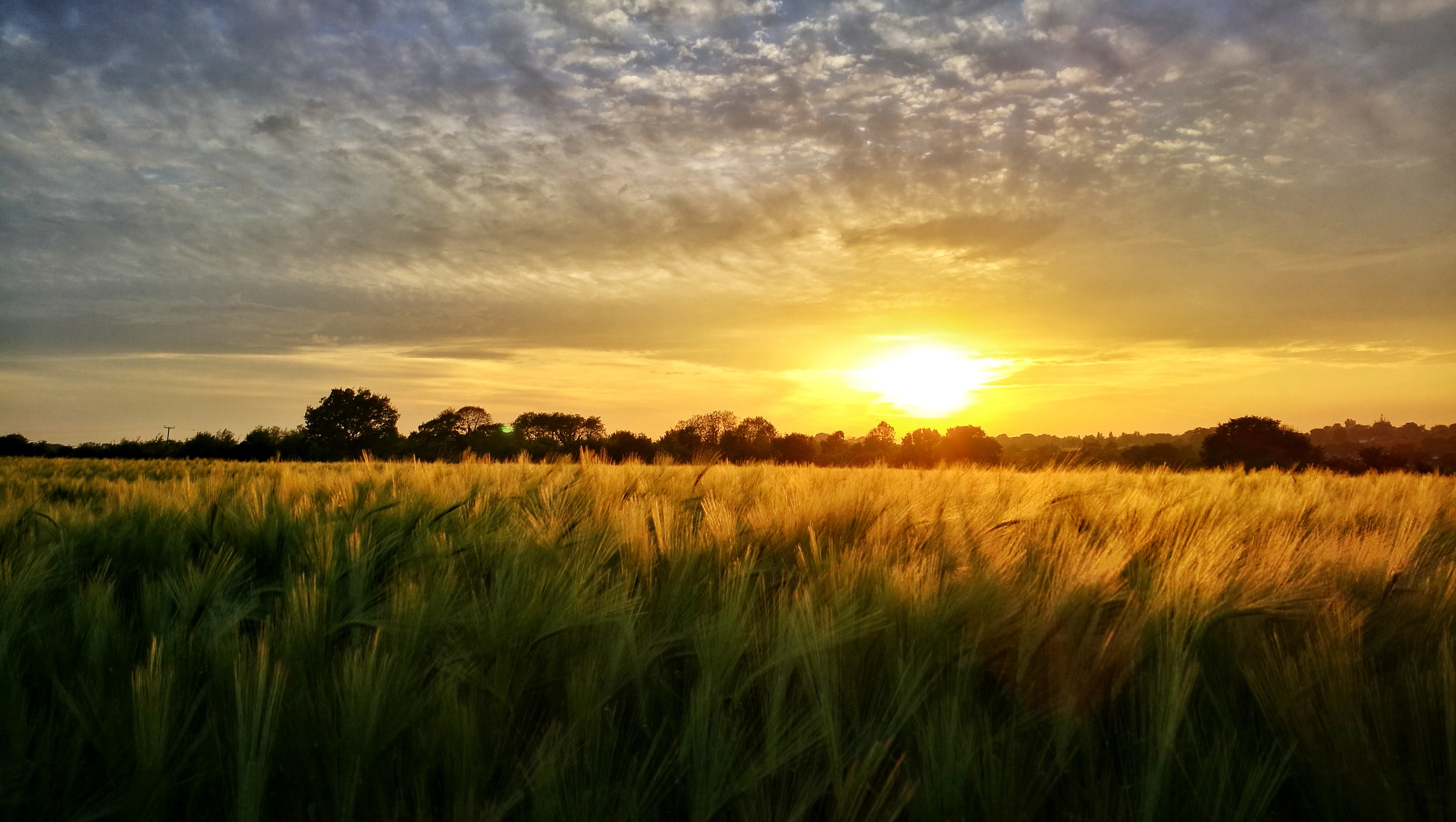Carla Carlisle: We've diversified, modernised and compromise — but now we're farming at a loss again for the first time since the 'Great Betrayal'
Carla Carlisle laments what has become of Wyken Farm — and worries how much worse it may yet get.


The day after my grandfather’s funeral, my grandmother sold the herd of cows. The pedigree Jerseys were all born on the farm and had never lived anywhere else.
We knew from the taste alone which cow the milk came from.
I howled as the innocent cows were loaded onto trucks that took them to a farm where nobody knew their names. My sister says this is ‘false memory’, that we were at school when they went. I’m sure I howled when I saw they were no longer there.
The dairy, the milking parlour and the hay barn joined the abandoned chicken houses to create an agricultural ghost town that looked like a photograph by Dorothea Lange. The only things that now grew were broken chairs, old bedsteads and galvanised milk churns, but we still called it a farm. Long after the deeds belonged to people we didn’t know, we called it the ‘home place’.
The farm on my father’s side went before I was born. It was in the Mississippi Delta, but it was never called a plantation, a word now gone with the wind. There were no mint juleps and hoop skirts, only miles of gravel roads, fields of cotton and soybeans, bony mules, incestuous bird dogs, swamps and lazy rivers. My grandfather spent half of his life managing thousands of acres that he had once owned. I never asked him what it felt like to lose your land, but I don’t think it is a ‘false memory’ if I say he was sad.
I didn’t activate my melancholy rural memories until I married a Suffolk farmer. Before then, I reckoned the most significant achievement of my life was getting off the farm and mastering the art of living in cities. For better or for worse, however, the past is imprinted on us in mysterious ways. Before I could tell wheat from barley, I was determined to Save the Farm.
My dowry did not include acreage (alas), but fierce knowledge of what had happened to farms in America. I had the zeal of a Born Again farmer and the banner I raised had just one word: DIVERSIFY. Before you could say ‘Jack Rabbit’, we had planted a vineyard on a steep south-facing slope. Three years later, we converted our 400-year-old barn into a ‘vineyard restaurant’, offering field-to-fork food with our wines before that sensible trio of words existed. In the dairy where the pedigree Friesians were milked (the dairy went in the 1960s), we created a shop and book store. After the foot-and-mouth epidemic, we started a weekly farmers’ market in the old sheep sheds and served coffee and bacon rolls in the old bull pen.
Exquisite houses, the beauty of Nature, and how to get the most from your life, straight to your inbox.
"In my idiotic innocence, I thought if we diversified the farm, the vineyard/restaurant/shop would protect it during rough times"
During covid, our son and daughter-in-law came back to the farm. They scooted the rats out of the rotten hay bales, installed a pizza oven in the tractor shed and started making sourdough pizzas, as well as smoking fillet of muntjac. They introduced rare-breed pigs and, this year, the cows came back: Belted Galloways, photogenic, gentle and vital for restoring the soil. I have to accept that they will eventually appear on the restaurant menu. My son reminds me: ‘Mama, it’s a farm, it’s not Charlotte’s Web.’
It’s a farm with 750 acres under the plough, nearly 300 acres of ancient English woodlands (SSSI) and wildflower meadows sown with seeds from an old meadow at nearby Great Ashfield. It is a farm that was recorded in Domesday and now has the diversification that employs 50 people, who all live within a 10-mile radius. We heat the buildings with a biomass run on fallen trees and from coppicing. Our electricity comes from the solar panels tucked in front of our reservoir. We are in the Higher Level Scheme for wildlife, only cut hedges every three years, have lavish field margins, new ponds, hedgerows and belts.
It looks more like the farm that my husband’s cousin bought in 1920 after the First World War. He paid £20 an acre for the 1,000-acre farm and spent as much again transforming the uninhabitable farmhouse into something closer to the manor house it had once been. On the eve of moving in, the Corn Act, which guaranteed minimum prices for grain, was repealed. Overnight, the price of wheat halved. Farmers called it ‘The Great Betrayal’ and for the next 20 years Wyken was farmed at a loss.
In my idiotic innocence, I thought if we diversified the farm, the vineyard/restaurant/shop would protect it during rough times. The farm prospered during the days of EU subsidies and those funds helped create the vineyard and restaurant. During droughts and rains, the business provided shelter to the farm. It seemed a good balance — no one in this arable universe predicted Brexit, although many farmers voted for it and now plough the fields of remorse.
Now, like the cousin who bought the farm 100 years ago, we are farming at a loss — a serious loss. The hardest hit by Labour’s budget are farms, restaurants and retail. Farms have lost all of their EU payments and now much of their environmental support. We are also hit hard by increased costs to any diversification projects which tend to be ‘people heavy’ (farm: two people; restaurant and shop: 50). The new costs will add £35,000 to our payroll. When the Chancellor suggests farmers should ‘set aside’ money each year to pay inheritance tax, we can only ask ‘set aside what?’
I began writing in Country Life in 1996 with a column about Bill Morley’s 400-acre farm. His land marched alongside ours and he was selling up. We wanted to buy, but were afraid of taking on the debt. I was haunted by the memory of farmers who were ‘land poor’: lots of acres, but no money.
The Morley farm was bought by Troston Farms, the Claas family who make the combines that harvest the wheat of the world. They now own the farms that surround us on three sides. Fortunately, they believe in farming the land, not growing concrete. They are good neighbours, but Wyken is a small island, a farm as old as Domesday. We wonder what comes next.

Credit: Getty Images/EyeEm
Carla Carlisle: Thirty years ago, our farm was on life support. It now thrives — and has 45 people on the payroll
Jeremy Clarkson's travails in farming are as well documented — by himself, in his television series — as they are turbulent. But

Credit: Richard Bowden / Getty
Carla Carlisle: It's taken me years, but I finally understand my father's dying gift to me
Carla Carlisle on learning to slow down — and how little life might mean if we don't.
